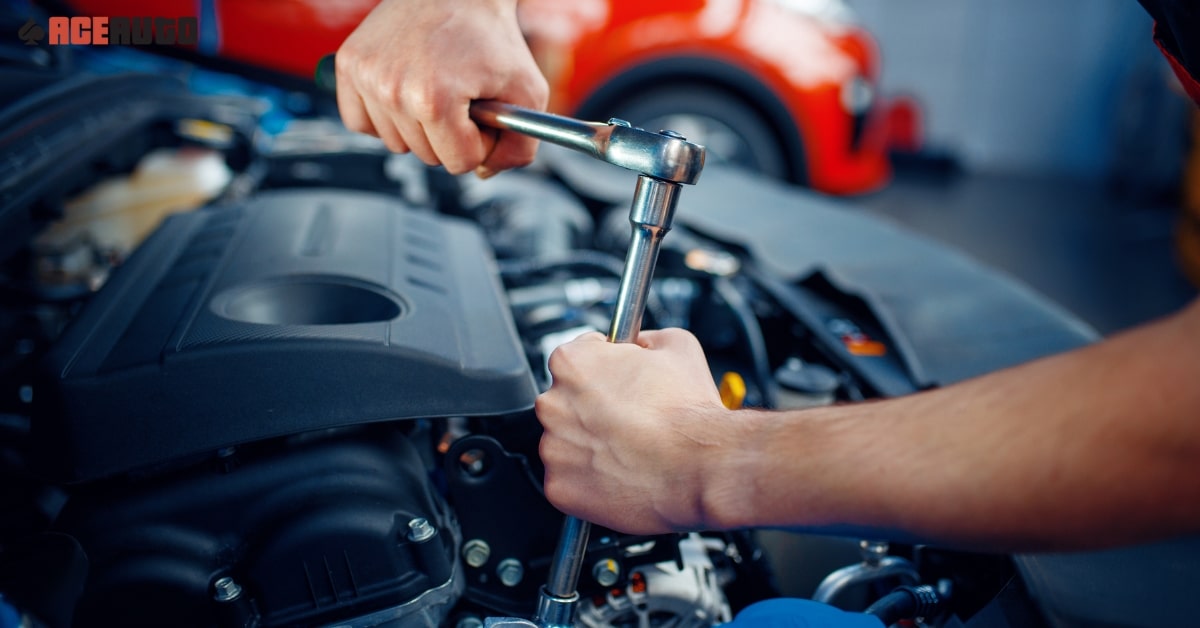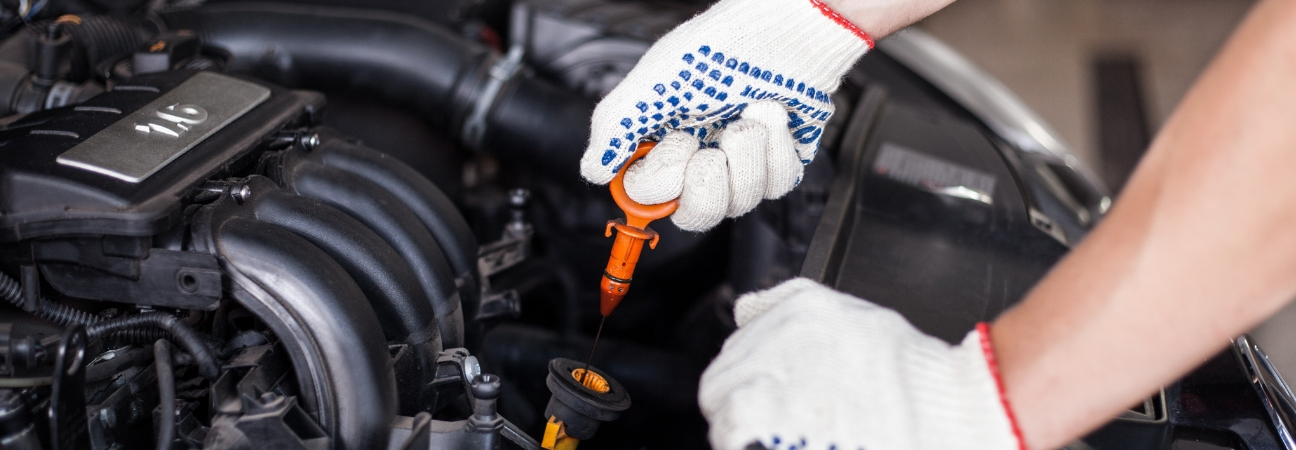All Categories
Featured
When your cars and truck overheats, it can seem like a major emergency situation, but staying calm and adhering to the right actions can protect against serious engine damages and aid get you back on the road securely. In this blog post, we'll explore what to do if your car overheats and offer preventative pointers to decrease the risk of overheating in the future.
What to Do If Your Automobile Gets too hot. If your car begins to overheat is to draw over to a secure area as soon as feasible, pull Over to a Safe Place The initial and most important step. Activate your threat lights and assist your car to the shoulder or right into a parking area. Keeping your vehicle running while it's overheated can create serious damages to the engine, so it's crucial to close the engine off as soon as possible.
Let the Engine Cool Down Once you've safely stopped, permit the engine to cool. You ought to never try to open the radiator cap while the engine is still warm, as the launch of heavy steam or hot coolant can create burns. Wait at the very least 15-20 minutes to allow the engine temperature level to go down to a much safer degree prior to continuing.
![]()
Inspect the Coolant Level After the engine has actually cooled, inspect the coolant degrees by examining the tank or radiator. If it's low, top it off with a combination of coolant and water (as defined by your lorry's manufacturer) Always use caution when opening up the coolant tank, as pressure might have developed up.
Seek Noticeable Leakages While you await the engine to cool, aesthetically check the radiator, hoses, and coolant storage tank for any visible leaks or cracks. A dripping radiator or tube is an usual source of overheating. If you find a considerable leakage, it's much better to call a tow service than threat driving even more and triggering extra damages.
Reboot the Engine After allowing the engine to cool and guaranteeing the coolant is completed, begin the engine and check the temperature scale. If the temperature level continues to rise swiftly, it's finest to shut the engine off and require roadside support or a tow to the nearby auto mechanic.
![]()
How to Avoid Getting Too Hot in the Future. On A Regular Basis Examine Coolant Degrees One of the simplest means to prevent overheating is by preserving the appropriate degree of coolant. In time, coolant can evaporate, so regularly check the coolant degrees in the reservoir. Reduced coolant levels can trigger the engine to overheat promptly, so leading it off as needed.
Evaluate the Radiator The radiator plays a critical function in keeping the engine cool. Periodically inspect the radiator for any kind of blockages, dirt, or debris that might obstruct airflow. If you observe any type of indications of damage, such as rust or leaks, have it repaired or replaced as soon as possible.
Change the Thermostat and Water Pump A malfunctioning thermostat or water pump is a common root cause of getting too hot. The thermostat regulates the circulation of coolant, while the water pump circulates it through the engine. It can stop proper cooling if either part is malfunctioning. Have your mechanic check these components regularly and replace them when required.
Flush the Cooling System Over time, coolant can degrade and become ineffective, triggering a buildup of particles in the system. Purging the cooling system every 30,000 miles, or as recommended in your car's manual, assists to eliminate any kind of sludge or accumulation and guarantees the cooling system is working effectively.
Display the Condition of the Hose pipes The hose pipes in your lorry's cooling system can put on out or fracture in time. Check the tubes for any type of indicators of wear, such as protruding, fractures, or leaks, and replace them if needed. Protecting against coolant leaks can go a lengthy method in avoiding getting too hot.
![]()
Drive Properly Hostile driving, such as increasing promptly or driving at broadband, places additional strain on your engine and its cooling system. Attempt to drive at modest rates, particularly on hot days or when driving on steep slopes, to decrease the chances of overheating.
Stay Clear Of Straining Your Lorry Carrying too much weight in your lorry puts stress and anxiety on the engine and cooling system. Constantly be mindful of your vehicle's weight restriction, especially if you're transporting hefty lots, hauling a trailer, or driving fars away in hot weather condition.
Verdict. An overheating car can be a frightening experience, yet recognizing exactly how to react and avoid it can save you time, cash, and possible engine damages. Constantly examine your coolant degrees, inspect crucial parts like the radiator, thermostat, and hose pipes, and adhere to a regular maintenance schedule. By staying on top of your automobile's air conditioning system, you can lower the risk of getting too hot and enjoy a smoother, much safer driving experience.
What to Do If Your Automobile Gets too hot. If your car begins to overheat is to draw over to a secure area as soon as feasible, pull Over to a Safe Place The initial and most important step. Activate your threat lights and assist your car to the shoulder or right into a parking area. Keeping your vehicle running while it's overheated can create serious damages to the engine, so it's crucial to close the engine off as soon as possible.
Let the Engine Cool Down Once you've safely stopped, permit the engine to cool. You ought to never try to open the radiator cap while the engine is still warm, as the launch of heavy steam or hot coolant can create burns. Wait at the very least 15-20 minutes to allow the engine temperature level to go down to a much safer degree prior to continuing.

Inspect the Coolant Level After the engine has actually cooled, inspect the coolant degrees by examining the tank or radiator. If it's low, top it off with a combination of coolant and water (as defined by your lorry's manufacturer) Always use caution when opening up the coolant tank, as pressure might have developed up.
Seek Noticeable Leakages While you await the engine to cool, aesthetically check the radiator, hoses, and coolant storage tank for any visible leaks or cracks. A dripping radiator or tube is an usual source of overheating. If you find a considerable leakage, it's much better to call a tow service than threat driving even more and triggering extra damages.
Reboot the Engine After allowing the engine to cool and guaranteeing the coolant is completed, begin the engine and check the temperature scale. If the temperature level continues to rise swiftly, it's finest to shut the engine off and require roadside support or a tow to the nearby auto mechanic.

How to Avoid Getting Too Hot in the Future. On A Regular Basis Examine Coolant Degrees One of the simplest means to prevent overheating is by preserving the appropriate degree of coolant. In time, coolant can evaporate, so regularly check the coolant degrees in the reservoir. Reduced coolant levels can trigger the engine to overheat promptly, so leading it off as needed.
Evaluate the Radiator The radiator plays a critical function in keeping the engine cool. Periodically inspect the radiator for any kind of blockages, dirt, or debris that might obstruct airflow. If you observe any type of indications of damage, such as rust or leaks, have it repaired or replaced as soon as possible.
Change the Thermostat and Water Pump A malfunctioning thermostat or water pump is a common root cause of getting too hot. The thermostat regulates the circulation of coolant, while the water pump circulates it through the engine. It can stop proper cooling if either part is malfunctioning. Have your mechanic check these components regularly and replace them when required.
Flush the Cooling System Over time, coolant can degrade and become ineffective, triggering a buildup of particles in the system. Purging the cooling system every 30,000 miles, or as recommended in your car's manual, assists to eliminate any kind of sludge or accumulation and guarantees the cooling system is working effectively.
Display the Condition of the Hose pipes The hose pipes in your lorry's cooling system can put on out or fracture in time. Check the tubes for any type of indicators of wear, such as protruding, fractures, or leaks, and replace them if needed. Protecting against coolant leaks can go a lengthy method in avoiding getting too hot.

Drive Properly Hostile driving, such as increasing promptly or driving at broadband, places additional strain on your engine and its cooling system. Attempt to drive at modest rates, particularly on hot days or when driving on steep slopes, to decrease the chances of overheating.
Stay Clear Of Straining Your Lorry Carrying too much weight in your lorry puts stress and anxiety on the engine and cooling system. Constantly be mindful of your vehicle's weight restriction, especially if you're transporting hefty lots, hauling a trailer, or driving fars away in hot weather condition.
Verdict. An overheating car can be a frightening experience, yet recognizing exactly how to react and avoid it can save you time, cash, and possible engine damages. Constantly examine your coolant degrees, inspect crucial parts like the radiator, thermostat, and hose pipes, and adhere to a regular maintenance schedule. By staying on top of your automobile's air conditioning system, you can lower the risk of getting too hot and enjoy a smoother, much safer driving experience.
Latest Posts
Learn How WyHy FCU Saves You Money on Borrowing and Banking
Published May 27, 25
1 min read
Find Montclare Auto Repair’s Leading Auto Repairs and Why Drivers Rely On Them
Published May 26, 25
1 min read
Why Chicago Drivers Prefer Montclare Auto Repair for Reliable Service and Significant Savings
Published May 24, 25
1 min read
More
Latest Posts
Learn How WyHy FCU Saves You Money on Borrowing and Banking
Published May 27, 25
1 min read
Find Montclare Auto Repair’s Leading Auto Repairs and Why Drivers Rely On Them
Published May 26, 25
1 min read
Why Chicago Drivers Prefer Montclare Auto Repair for Reliable Service and Significant Savings
Published May 24, 25
1 min read